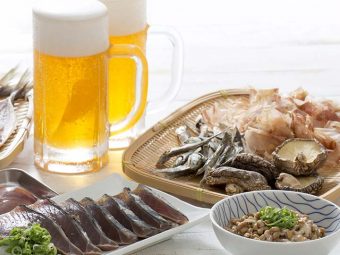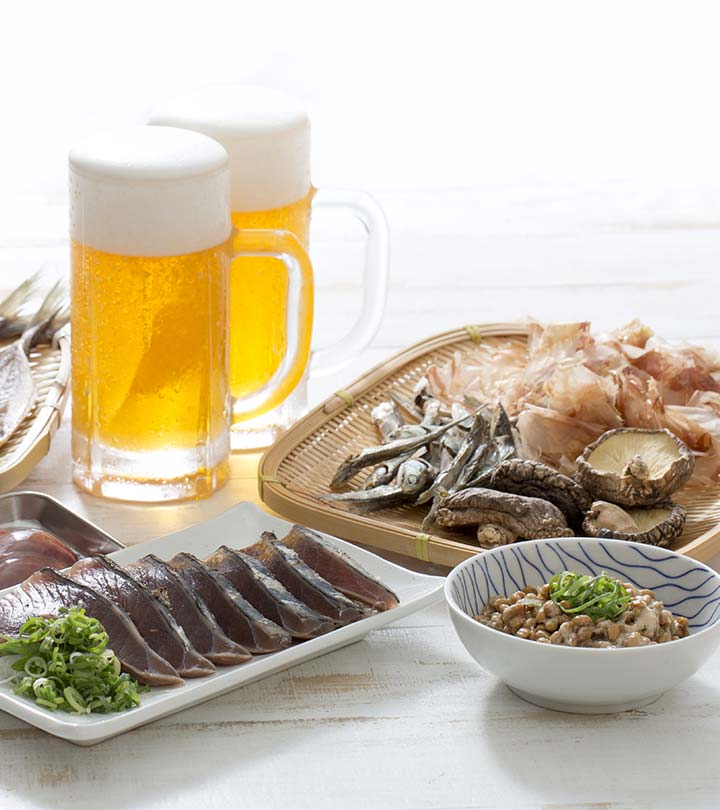Purine-rich foods can raise uric acid levels in the body, leading to the formation of uric acid crystals that can cause the painful symptoms of gout. Some common purine-rich foods include organ meats, game meats, seafood like anchovies and mussels, and sugary drinks.
It is important to limit the consumption of these foods to manage gout and lower uric acid levels naturally.
Understanding Purines And Their Effects
Discover the impact of purines on your body with this comprehensive list of the top 30 high-purine foods and their effects. Learn how consuming purine-rich foods can raise uric acid levels, leading to the development of painful gout symptoms. Stay informed to make healthier dietary choices.
What are purines?
Purines are organic compounds that are found in both plant and animal foods. They are an essential component of DNA, RNA, and ATP, which are all vital for cellular function and energy production in the body. While purines have important roles in the body, consuming too many high-purine foods can have negative effects on health.
How do purines affect the body?
When we consume foods that are high in purines, our body breaks them down into uric acid. Uric acid is a waste product that is normally excreted in urine. However, if there is an excess of uric acid in the blood, it can lead to a condition called hyperuricemia. Excess uric acid can form crystals that accumulate in joints and soft tissues, causing inflammation, pain, and swelling. This condition is known as gout.
While gout is the most well-known effect of high-purine foods, purines can also affect other aspects of health. Research has shown that high purine consumption may contribute to the development of kidney stones, as uric acid can crystallize and form stones in the urinary tract.
It is important to note that not all foods high in purines need to be completely avoided. Moderation is key, as some purine-rich foods may also offer important nutritional benefits. It is advisable to consult with a healthcare professional or registered dietitian to develop an individualized approach to managing purine intake based on a person’s specific health condition and goals.
Here is a table listing some common foods that are high in purines:
| Food | Purine Content |
|---|---|
| Organ meats (liver, kidney, sweetbreads) | High |
| Game meats (venison, rabbit) | High |
| Seafood (anchovies, sardines, mussels) | High |
| Red meats (beef, lamb, pork) | Moderate |
| Legumes (beans, lentils) | Moderate |
| Spinach | Low |
| Mushrooms | Low |
It is important to note that individual sensitivities to purines can vary. Some people may be more susceptible to the effects of high-purine foods, while others may be able to tolerate them in moderation. As with any dietary changes, it is best to listen to your body and work with a healthcare professional for personalized guidance.
In conclusion, understanding purines and how they affect the body is crucial for managing conditions like gout and kidney stones. While high-purine foods can contribute to these conditions, it is important to approach dietary changes with balance and moderation, taking into consideration individual health needs and goals. Consulting with a healthcare professional or registered dietitian is recommended for personalized advice and guidance.

High Purine Foods
When it comes to gout, understanding the role of high-purine foods is essential. Purines are natural compounds that are found in certain foods and are also produced by the body. While purines play important roles in various bodily functions, consuming an excessive amount of purine-rich foods can lead to elevated levels of uric acid in the bloodstream, which can trigger gout attacks.
Seafood
Seafood is often considered a healthy choice for many people, but for those with gout, certain types of seafood can be problematic due to their high purine content. Anchovies, codfish, haddock, herring, mackerel, mussels, sardines, scallops, and trout are all examples of seafood that contain high levels of purines. These purines can contribute to elevated uric acid levels and worsen gout symptoms.
Meat And Organ Meats
Meat, especially organ meats, is another category of foods that are high in purines. Organ meats such as liver, kidney, and sweetbread contain particularly high amounts of purines and should be avoided or consumed in moderation by individuals with gout. Red meats like beef, lamb, pork, and bacon are also high in purines and should be limited in a gout-friendly diet. Even lean meats like turkey can increase uric acid levels, so portion control is essential.
Other Foods And Beverages
In addition to seafood and meat, there are other foods and beverages that are worth noting due to their purine content. Certain seafood, like herring, scallops, mussels, codfish, tuna, and haddock, can contribute to uric acid buildup. Sugary drinks and sweets, high fructose corn syrup, and alcohol can also increase the risk of gout attacks for individuals with high uric acid levels.
To manage uric acid levels naturally and reduce the risk of gout attacks, it is important to limit the consumption of purine-rich foods. Opting for low-purine alternatives, maintaining a moderate weight, avoiding alcohol and sugary drinks, increasing vitamin C intake, and incorporating cherries into the diet are some strategies that can help lower uric acid levels.
Managing Uric Acid Levels
When it comes to managing uric acid levels in the body, it is essential to understand how certain foods can affect these levels. Uric acid is a compound that naturally occurs in the body and is also found in certain foods. However, consuming foods high in purines can elevate uric acid levels, leading to the development of conditions like gout. In this article, we will explore various strategies to manage uric acid levels, including natural methods, a low-purine diet, and other helpful tips.
Lowering Uric Acid Naturally
Lowering uric acid levels naturally can be achieved through a combination of dietary changes and lifestyle habits. Here are some effective methods:
- Limit purine-rich foods. Consuming foods high in purines can increase uric acid levels. It is important to limit the intake of purine-rich foods such as organ meats, game meats, certain seafood (like herring, scallops, mussels, codfish, tuna, trout, and haddock), and red meats (including beef, lamb, pork, and bacon).
- Eat low-purine foods. Incorporating low-purine foods into your diet can help maintain healthy uric acid levels. Opt for foods like vegetables (broccoli, artichoke, and French beans), fruits (banana, apricot), and legumes.
- Avoid certain medications: Some medications can increase uric acid levels. If you are prone to high uric acid levels, consult your doctor about potential alternatives.
- Maintain a moderate weight: Being overweight can contribute to higher uric acid levels. Maintaining a healthy weight through regular exercise and a balanced diet can help prevent excessive uric acid production.
- Avoid alcohol and sugary drinks. Alcohol can hinder the body’s ability to eliminate uric acid. Additionally, sugary drinks contribute to weight gain and increased purine levels.
- Drink coffee: Studies have shown that moderate coffee consumption may lower uric acid levels. However, excessive intake should be avoided, as it can lead to other health issues.
- Increase vitamin C intake: Vitamin C has been found to help lower uric acid levels. Incorporate foods rich in vitamin C, such as citrus fruits, berries, and leafy greens, into your diet.
- Eat cherries. Cherries and cherry extracts have been shown to help reduce uric acid levels and decrease gout attacks.
Low-purine Diet
A low-purine diet is often recommended for individuals with gout or elevated uric acid levels. This type of diet involves restricting the intake of foods high in purines to help lower uric acid levels. Here are some key points to consider when following a low-purine diet:
- Avoid or limit high-purine foods like organ meats, game meats, certain seafood, and red meats.
- Choose low-purine alternatives such as vegetables, fruits, legumes, low-fat dairy products, and whole grains.
- Stay hydrated by drinking an adequate amount of water throughout the day to help flush out excess uric acid.
- Limit alcohol consumption, as it can raise uric acid levels.
Other Strategies
In addition to adopting a low-purine diet and natural methods, there are other strategies that can help manage uric acid levels:
- Avoid or limit foods that can elevate blood acidity, as they may worsen gout symptoms.
- Reduce stress levels through relaxation techniques like meditation or yoga, as stress can trigger gout attacks in some individuals.
- Consult a healthcare professional or registered dietitian for personalized guidance and recommendations.
By implementing these strategies, individuals can effectively manage their uric acid levels and minimize the risk of gout and related complications.


Frequently Asked Questions Of Top 30 Foods High In Purines And How They Affect The Body
What Happens When You Eat High Purine Foods?
High purine foods can raise uric acid levels, leading to the formation of uric acid crystals in soft tissues and joints, causing painful symptoms of gout. Examples of high purine foods include organ meats, seafood like anchovies, sardines, and scallops, as well as sugary drinks and sweets.
It’s important to limit consumption of these foods to manage gout.
Which Foods Contain The Most Purines?
Foods high in purines include offal, sardines, scallops, and sweetbread. Consuming these foods can raise uric acid levels and worsen the symptoms of gout. Other high purine foods to avoid are anchovies, codfish, haddock, herring, mackerel, mussels, trout, and certain seafood.
Limiting purine-rich foods, maintaining a moderate weight, and avoiding alcohol and sugary drinks can help manage uric acid levels naturally.
What Are The 10 Foods That Trigger Uric Acid?
Foods that trigger uric acid are offal, sardines, scallops, sweetbread, anchovies, codfish, haddock, herring, mackerel, mussels, trout, sugary drinks, high fructose corn syrup, alcohol, organ meats, game meats, certain seafood, red meats, and turkey. To lower uric acid levels naturally, limit purine-rich foods, eat low-purine foods, avoid certain medications, maintain a moderate weight, avoid alcohol and sugary drinks, drink coffee, increase vitamin C intake, and eat cherries.
How Do You Get Rid Of Uric Acid In Your Body?
To get rid of uric acid in your body, limit purine-rich foods, eat low-purine foods, avoid certain medications, maintain a moderate weight, avoid alcohol and sugary drinks, drink coffee, increase vitamin C intake, and eat cherries.
Conclusion
Consuming foods high in purines can have a significant impact on the body, particularly for individuals with gout. These purine compounds can raise uric acid levels, leading to the formation of painful uric acid crystals in the tissues and joints.
It is important for those with gout to be aware of the purine content in various foods and to make dietary choices accordingly. By limiting purine-rich foods, eating low-purine alternatives, maintaining a healthy weight, and avoiding alcohol and sugary drinks, individuals can effectively manage their uric acid levels and reduce the risk of gout flare-ups.

